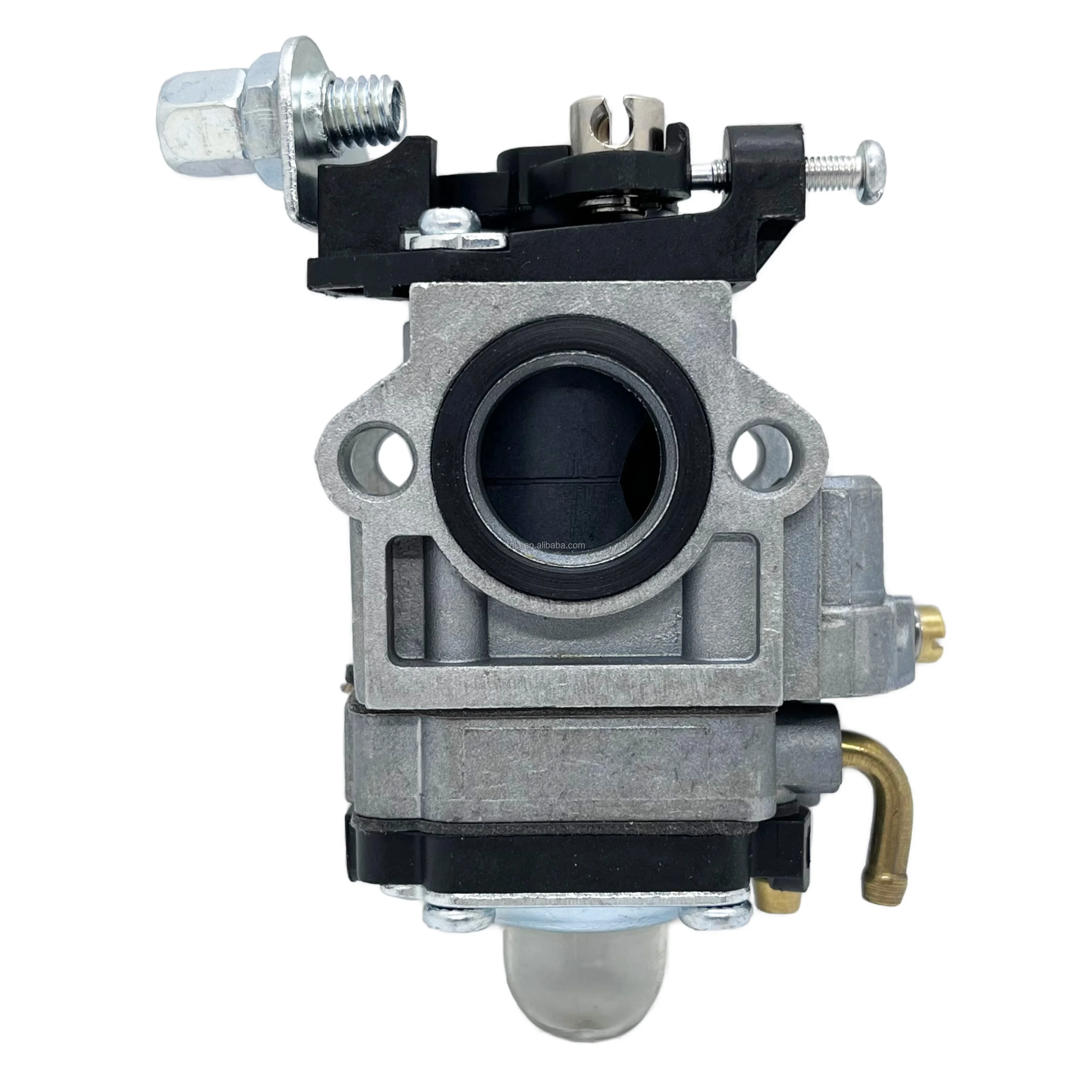Generator carburetors play a vital role in ensuring your generator delivers reliable performance and achieves optimal power output. They regulate the air-fuel mixture, enabling efficient combustion that powers the engine effectively. A clean and properly maintained carburetor keeps your generator running smoothly and prevents unexpected breakdowns. Ignoring its upkeep can lead to reduced efficiency, power loss, or expensive repairs. By prioritizing carburetor care, you ensure your generator operates at its best, providing consistent and dependable power when you need it most, ultimately contributing to optimal power output.
The Role of Generator Carburetors in Optimal Power Output
How Generator Carburetors Work
Generator carburetors serve as the heart of your generator's engine. They mix air and fuel in precise proportions to create a combustible mixture. This mixture powers the internal combustion engine, which generates electricity. Without this process, your generator cannot produce the energy you rely on during power outages or outdoor activities.
The carburetor operates by drawing air through an intake valve. It then combines this air with fuel from the generator's tank. The mixture flows into the engine's combustion chamber, where it ignites to produce energy. A properly functioning carburetor ensures this process runs smoothly, delivering consistent performance. If the air-fuel ratio is off, the engine may sputter, stall, or fail to start altogether.
Understanding how your carburetor works helps you appreciate its importance. It is not just a component; it is the mechanism that ensures your generator delivers optimal power output. Keeping it clean and well-maintained allows it to perform its job effectively.
The Impact of Carburetor Performance on Power Output
The performance of your generator's carburetor directly affects its ability to deliver power. A clean and efficient carburetor ensures the engine receives the right air-fuel mixture. This balance is crucial for achieving optimal power output. When the carburetor functions properly, your generator can operate at its rated capacity, powering multiple devices without interruptions.
A poorly maintained carburetor can lead to several issues. Blockages or dirt buildup restrict fuel flow, causing the engine to run inefficiently. This inefficiency results in reduced power output, which means your generator may struggle to meet your energy needs. In severe cases, a malfunctioning carburetor can damage the engine, leading to costly repairs.
To maintain optimal power output, you must prioritize carburetor care. Regular cleaning and inspections prevent performance issues. Using high-quality fuel and additives, such as stabilizers, can also enhance carburetor efficiency. By taking these steps, you ensure your generator operates reliably and delivers the power you need.
Maintenance Practices for Sustained Optimal Power Output
Cleaning Your Generator Carburetor
Keeping your generator carburetor clean is essential for maintaining its performance. Dirt, debris, and fuel residue can accumulate over time, clogging the carburetor and disrupting the air-fuel mixture. This buildup reduces efficiency and impacts the generator's ability to deliver optimal power output.
To clean your carburetor, start by turning off the generator and disconnecting it from any power source. Remove the carburetor carefully, following the instructions in your generator's manual. Use a carburetor cleaner spray to dissolve dirt and residue. Pay close attention to the jets and passages, as these areas are prone to blockages. A soft brush or compressed air can help remove stubborn debris.
Reassemble the carburetor once it is thoroughly cleaned and dry. Regular cleaning, especially after extended use or storage, ensures your generator runs smoothly and efficiently. This simple maintenance step prevents performance issues and extends the life of your equipment.
Servicing and Adjusting the Carburetor
Servicing your carburetor involves more than just cleaning. Over time, components may wear out or require adjustment to maintain proper functionality. Regular servicing ensures the carburetor delivers the correct air-fuel mixture for optimal power output.
Inspect the carburetor for signs of wear, such as damaged gaskets or corroded parts. Replace any worn components promptly. Adjusting the carburetor may also be necessary to fine-tune the air-fuel ratio. Use the adjustment screws on the carburetor to achieve the ideal balance. Refer to your generator's manual for specific instructions on making these adjustments.
Testing the generator after servicing is crucial. Start the engine and observe its performance. Listen for smooth operation and check for consistent power delivery. Proper servicing and adjustments keep your generator running at peak efficiency, ensuring reliable performance when you need it most.
Preventative Maintenance Tips for Long-Term Performance
Preventative maintenance is key to avoiding costly repairs and ensuring your generator operates efficiently. Simple practices can help you maintain the carburetor and extend the lifespan of your generator.
Use high-quality fuel: Low-quality fuel can leave deposits in the carburetor, affecting its performance. Opt for clean, fresh fuel to prevent buildup.
Add fuel stabilizers: Stabilizers prevent fuel from breaking down during storage, reducing the risk of clogs in the carburetor.
Run the generator regularly: Periodic use keeps the carburetor components lubricated and prevents fuel from stagnating.
Inspect the air filter: A clogged air filter restricts airflow, impacting the carburetor's efficiency. Clean or replace the filter as needed.
Store the generator properly: Drain the fuel or add a stabilizer before storing the generator for extended periods. This step prevents residue from forming in the carburetor.
By following these preventative measures, you can avoid common carburetor issues and ensure your generator delivers consistent power. Regular maintenance not only enhances performance but also saves you time and money in the long run.
Troubleshooting Generator Carburetor Issues
Identifying Common Carburetor Problems
Understanding common carburetor problems helps you address issues before they escalate. A malfunctioning carburetor often shows clear signs that something is wrong. You may notice the generator struggling to start or failing to start altogether. This issue often points to a clogged or dirty carburetor, which disrupts the air-fuel mixture.
Another common problem is inconsistent power delivery. If your generator surges or stalls during operation, the carburetor might not be supplying the engine with the correct air-fuel ratio. This imbalance can result from blockages, worn-out components, or improper adjustments.
Fuel leaks around the carburetor also indicate trouble. Leaks often stem from damaged gaskets or loose connections. Additionally, black smoke from the exhaust suggests the carburetor is delivering too much fuel, leading to inefficient combustion. Recognizing these symptoms allows you to take action and restore your generator's performance.
Fixing Common Issues for Restored Power Output
Once you identify the problem, you can take steps to fix it and restore your generator's optimal power output. Start by cleaning the carburetor if dirt or debris is causing blockages. Remove the carburetor, disassemble it, and use a carburetor cleaner to remove buildup. Pay attention to the jets and passages, as these areas are prone to clogs.
If the issue involves worn-out parts, replace them promptly. Damaged gaskets, corroded screws, or cracked components can hinder the carburetor's performance. Use replacement parts recommended by the generator manufacturer to ensure compatibility.
Adjusting the carburetor may also resolve performance issues. Use the adjustment screws to fine-tune the air-fuel mixture. Refer to your generator's manual for guidance on achieving the correct settings. After making adjustments, test the generator to confirm smooth operation and consistent power delivery.
Addressing these common issues ensures your generator operates efficiently. Regular maintenance and timely repairs prevent minor problems from turning into costly repairs.
When to Seek Professional Assistance
Some carburetor problems require professional expertise. If your generator continues to malfunction despite cleaning and adjustments, it may have underlying issues that need specialized tools or knowledge. Persistent fuel leaks, severe power loss, or unusual noises during operation signal the need for professional help.
A professional technician can diagnose complex problems and perform advanced repairs. They can also test the generator under various conditions to ensure it delivers reliable performance. Seeking professional assistance saves time and prevents further damage to your equipment.
Knowing when to call an expert protects your investment and ensures your generator provides dependable power. While basic troubleshooting is manageable, professional support guarantees long-term reliability.
Generator carburetors play a crucial role in ensuring your generator operates efficiently and delivers optimal power output. By maintaining, cleaning, and troubleshooting the carburetor regularly, you can prevent common performance issues and avoid costly repairs. These practices not only extend the lifespan of your generator but also ensure it provides consistent and reliable power when you need it most. Prioritizing carburetor care saves you money over time and guarantees that your generator remains a dependable source of energy for various needs.

